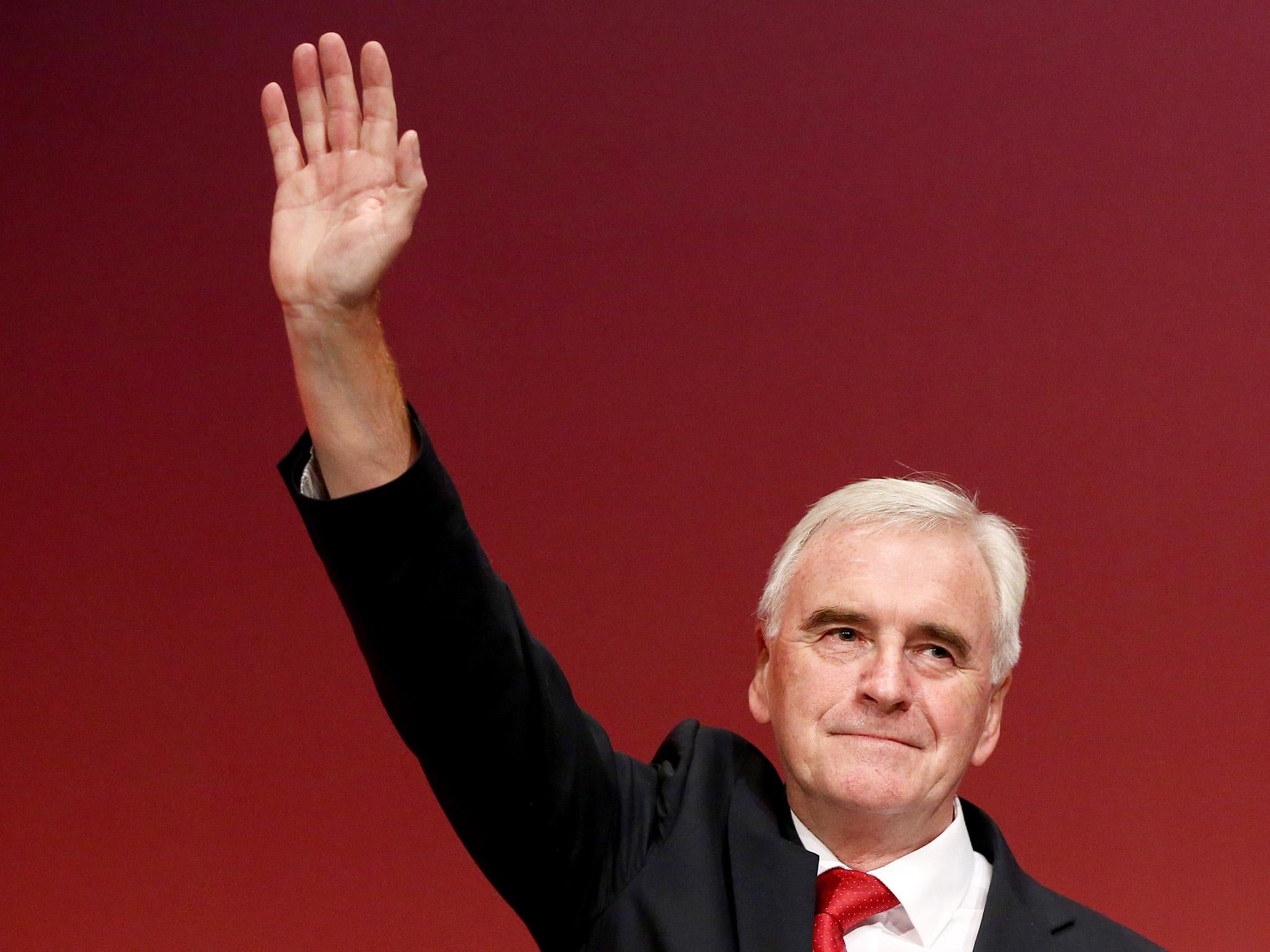The Independent's journalism is supported by our readers. When you purchase through links on our site, we may earn commission.
This is the truth about whether Labour's economic policies on renationalisation would actually work
Are there are any grounds for believing that the assets in question would be run more efficiently and satisfactorily by the public sector than the private sector?


For Labour it’s the glad confident morning of 1945 all over again. “Rail, water, energy, Royal Mail – we’re taking them back,” John McDonnell declared at the party’s conference on Monday, reaffirming Labour’s manifesto pledge to renationalise a swathe of industries and topping it off with new pledge to bring priviate finance initiative contracts back “in-house”.
Cementing the analogy, the Shadow Chancellor cited the post-war Attlee government, which “built a new society from the debris of the bomb sites”.
Yet for the right it’s all a repeat of a horror movie from 1979. “Labour seeks to reverse almost 40 years of economic reform that turned our country from the sick man of Europe into [a] global success story,” tweeted Elizabeth Truss, the Chief Secretary to the Treasury. Renationalisation, such critics suggest, will inevitably plunge us back into public sector sclerosis, union militancy and relative economic decline.
So who is right? Would renationalisation be a dream or a nightmare? Is it 1945 or 1979? The answer, which will not please ideologues on either side, is that it depends. It depends on a multitude of factors, some of them structural, some technological, some industry specific, all hinging on the unknowable future competence of public officials, regulators and politicians.
But first let’s not talk about money. A common argument is that programmes of renationalisation of energy companies, water companies and the like would be ruinously expensive for the state in themselves. Even attempting this programme would supposedly prove prohibitively expensive.
Double-entry bookkeeping is the answer to this kind of confusion. When you sell something for what it is genuinely worth, you do not make yourself any better off. You simply swap one asset for another. The same is true in reverse.
If a future government were to raise money from the bond markets to buy out the shares of, say, privatised water companies, it would not make the UK state any worse off in substantive economic terms because, while debt would have risen, the state would have also have acquired an asset. There would be no hole in the national balance sheet.
The right question to ask about nationalisation does not relate to the cost of the transaction but the future cost of the change in the form of ownership. Are there are any grounds for believing that the assets in question would be run more efficiently and satisfactorily by the public sector than the private sector?
Would UK public officials likely prove more efficient at running the trains than the patchwork of companies (many of them ultimately controlled by foreign governments) that do the job at the moment?
Would our civil servants be superior at operating water companies than the private managers that currently perform the task? Would traders employed by a public energy company make a better fist of securing the best-value fuel contracts for British households than traders hired by private firms?
Other vital questions come into focus. Is the need to pay dividends to private shareholders impeding investment? Is there evidence of price gouging under the current arrangements? What are the incentives acting on private managers? What are the lines of accountability to users? How effective is competition in these sectors – and does the basic structure of the industry present an insurmountable impediment? Could the objectives of nationalisation – driving up service standards and efficiency – be achieved more effectively through better state regulation than outright nationalisation?
Labour’s programme is superficially popular. Polls show majorities of the public in favour of national ownership of energy, water and rail. There are well-documented failures in all of these sectors. And the clear evidence from Europe is that nationally owned utilities can deliver perfectly decent results. There is nothing inherently superior about private ownership.
But polls also show there is little support in Britain for public ownership of airlines or telecoms firms. Few seriously want to reverse the Thatcher-era privatisation of British Telecom or British Airways. Those are privatisations that have broadly delivered what was promised. That suggests public support for nationalisation of rail and water could evaporate if those assets turned out to deliver a worse deal for consumers in public hands.
Tony Blair is not attending Labour’s conference this week but one of his old sayings deserves to be heeded by both sides in the excessively ideological battle over nationalisation: “What matters is what works.”
You can listen to Ben reading his piece here

Join our commenting forum
Join thought-provoking conversations, follow other Independent readers and see their replies